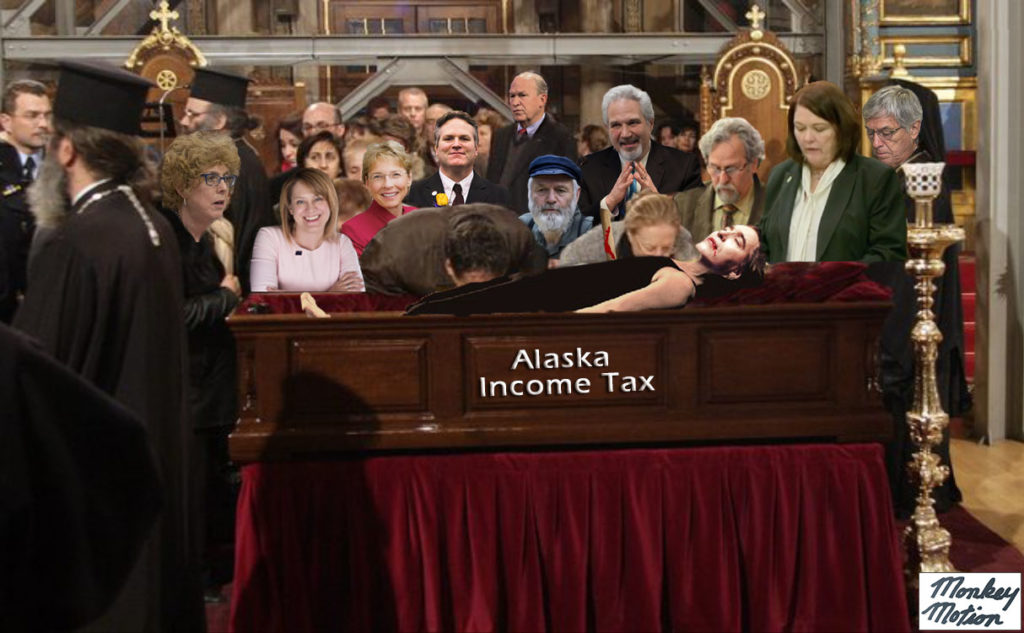
HOMER, Alaska – A small group of Homer residents held signs and waved flags at passersby today, as this seaside community gears up for a recall election that has already attracted hundreds of early and absentee voters.
The response has been overwhelmingly positive, with more honks and waves from drivers than thumbs down. Organizers of the recall, which seeks to remove three city council members, say they are encouraged going into the home stretch of a drama that has played out for several months.
Tomorrow is decision day for Donna Aderhold, David Lewis, and Catriona Reynolds, who worked together somewhat surreptitiously to try to make Homer a sanctuary city, where illegal immigrants could find safe haven from federal authorities. It was an act of defiance against the Trump presidency.
FLYERS, SIGNS, FLAGS, AND BARBECUES: Late last week, Homer voters may have seen a reminder flyer in their mailboxes, which was printed and mailed by Heartbeat of Homer, the group that formed to oppose the council members and their efforts.
The flyer contained photos of a few of the actual emails between the council members, which showed their original intent. That intent was later watered down into a resolution that failed to gain the support of most of the council.

About 150 Homerites came through the Heartbeat of Homer fellowship barbecue on Saturday, a strong turnout for a community that is at the height of its tourist and fishing season. Recall organizers say they are tired, but feel good about their efforts and the response of the community.
To summarize: Three council members face recall after having exchanged emails that showed they were trying to establish Homer as a sanctuary city, where illegal immigrants could find safe haven. They worked with far-left groups outside the state to get the wording right.
Some citizens got ahold of the emails via a public records request earlier this spring, filed a recall petition, and the town has been torn apart ever since over whether those council members were acting properly and in the best interests of the city.
Some citizens feel they’ve been tricked by the three, who subsequently changed their story about their actual intent. Their original language had been crafted by a retired reporter, Hal Spence.
The council members didn’t like facing recall, so they sued to quash the election. They hired the ACLU in Anchorage to defend them, lost in court, and are now asking the city of Homer to pay the legal costs they owe Heartbeat of Homer because Heartbeat had to hire a lawyer to fight for the recall election. The losing side of that case is required to cover at least some of the legal fees of the winner.
The three council members had offered to not take the case to a higher court if the recall proponents agreed to waive the legal fee reimbursements. That didn’t fly with Heartbeat of Homer.
The drama-filled situation has drawn the interest of a reporter from the radio show This American Life, which runs weekly on NPR. The reporter landed in Homer this weekend and is staying through the voting festivities. Brian Reed, senior producer of the show, was spotted at the Heartbeat of Homer picnic on Saturday and will be developing some kind of long-form radio piece in the classic public broadcasting style, which will come out long after the election dust has settled and everyone has gone fishing. Care to guess how he’ll be portraying the recall proponents?
[Read: Smoking Gun: Homer City Council members tried to make it a sanctuary city]














